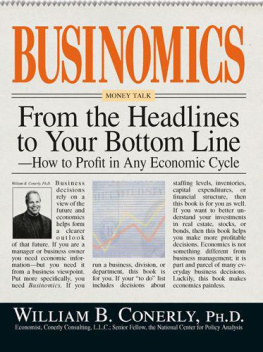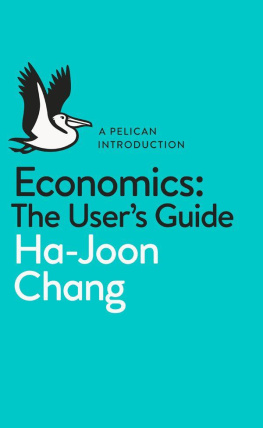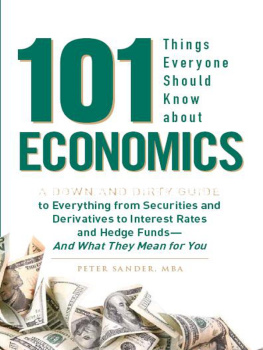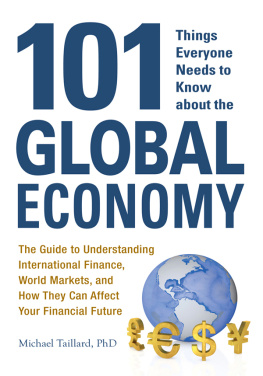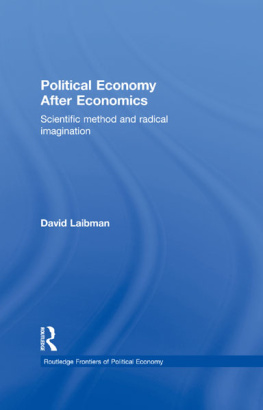THE
EVERYTHING
ECONOMICS
BOOK
From theory to practice, your complete guide to understanding economics today
David A. Mayer
Foreword by Melanie E. Fox, PhD
The Top 10 Things You Should Know
about Economics
Nothing is free. Costs are involved with every choice.
All decisions are made by individuals. Individuals bear the cost of these decisions.
Voluntary trade creates wealth for both buyer and seller.
They do not set prices. We set prices.
You can have too much of a good thing. Utility is
diminishing.
Unemployment by any other name is probably not unemployment.
What is true in the long run might not be true in the short run.
Policymakers who manage expectations can manage reality.
If given a choice between inflation and deflation, choose inflation.
Individuals are better at managing their finances than are governments.
Foreword
IT HAS BEEN SAID that economics is common sense made as difficult as possible. When most people hear that I teach economics, I can usually count on either a story about how much they disliked taking an economics class or a glazed look coming over their eyes, followed by a desperate attempt to find the nearest exit. To most people, economics evokes images of a dry and boring hodge-podge of financial numbers and indecipherable graphs. As a field, our disciples
have done little to remedy this notion. Between the famously incomprehensible speeches of Alan Greenspan to the seemingly unending contradictory pronouncements made by
economic experts, it is little wonder that when most people hear an economist start talking, they immediately tune out and let those money people deal with money stuff.
But economics is so much more than just supply and
demand, and more than just markets and numbers. At its heart, it's a social science, a study of people and what they do. Indeed, as I like to tell my colleagues in other fields, we are the most social of social sciences, which makes us a little sad that we are so misunderstood and frequently standing alone at cocktail parties. Sure, we can tell you why the economy went bust in 2007 if you are interested, but we also have far more interesting perspectives. For example, a basis of rationality (as economics define it) is that a rational person will consume up to the point where the benefit of that last bit of consumption is the same as the cost of that last bit of consumption. So if that cheesecake is free, stuffing yourself with free cheesecake is not rationalizing but outright rational! (What it will do to your waistline is another story.)
The Everything Economics Book is an apt title, because in
reality everything is economics. It is the study of why people (and groups of people like households, businesses, and nations) do what they do and how they go about doing it. But if economics is everywhere, why do most people view economics as difficult? Well, it's because we economists think a little bit differently than all of you so-called normal
people out there. We have a slightly different language and a different philosophy about life and how people live it. But when you break it back down into common sense, most people find (occasionally to their horror) that they really were economists all along.
It all starts with a sad truth: we have a finite universe, but we are bound by human nature to always want more. Given these irreconcilable facts, how do we go about our lives?
Why do we make the goods we do and why do banks fail?
Why do politicians contradict each other over what would happen if taxes are lowered? How can a tree hugger and a money miser find marital bliss?
The Everything Economics Book gets you inside an economist's head and introduces you to thinking like one of us. The framework that we use (that is, how our brains see problems and how people respond to them) is laid out in a common-sense way that anyone can understand. These ideas
are presented in real-life situations that make the concepts seem intuitively obvious, and make the answers to questions like those above come as easily as cocktail party banter. It has been my pleasure to introduce you to the book that will make you a part of our little club. And remember, if your knowledge of economics doesn't impress people at parties, you can always use it to scare them away from the table with all the nice cheeses.
Melanie E. Fox, PhD
Introduction
YOU HAVE TO LEARN economics! This subject will make you look at the world in ways that you would have never considered before. Your friends will be astounded and amazed at your capacity to understand the arcane comments made by politicians, talking heads, and central bankers.
When interest rates change, you will find yourself doing mental gymnastics just thinking about all of the exciting ramifications. Not only will you be smarter, you will also sound smarter. Read this book, and the next time you are at a cocktail party start quoting it. Soon you will be the center of attention and the life of the party.
Studying economics puts you in a league with some of the
world's great thinkers. Adam Smith, David Ricardo, John Stuart Mill, Karl Marx, Friedrich von Hayek, John Maynard Keynes, Milton Friedman, Ben Stein, Mick Jagger, and of course, Arnold Schwarzenegger. Every time friends and family start suggesting things or complaining about the government not doing enough, you can sit back, smile, and remind them, There is no such thing as a free lunch.
Economics lets you make connections between seemingly disparate things, like the rate of unemployment and dear old Dad's tendency to replace his underwear. You will wow people with the ability to shoot down anyone's argument with cold, calculated logic, and then turn around and shoot down your own argument with the same cold, calculated logic.
When the world panics because of some catastrophic economic news, then you can explain to everyone why they are panicking as you panic right along. In economics, expectations become reality and money is just a social construct. Friends will no longer ask to borrow from you when they are in trouble because they will have heard you warn them of moral hazard. You will throw around new vocabulary like diminishing marginal utility, paradox of thrift, and everyone's new favorite, quantitative easing. If
you really read the book, then you will even be able to define what they mean!
Your boss will stand in amazement as you wax poetic on controlling variable costs and maximizing profits. Teachers and classmates will be spellbound as you explain the opportunity cost of not skipping third period. A meaningful discussion of stocks, bonds, options, mutual funds, and collateralized debt obligations will no longer sound like some strange dialect of Portuguese.
Exchange rates and savings flows will be like child's play for you. Capital and investment will take on a whole new meaning. Constructing a CPI and deflating nominal GDP will be second nature to you. Your poet hippie cousin that lives in a van and plays guitar will be thrilled when you explain to him why he is technically not unemployed.
Your out-of-work friends will find no comfort when you explain what a jobless recovery is. Every time you go out for dinner you will set the marginal benefit of your decision against the marginal cost in order to maximize your utility.
Accountants will shudder in horror when you zero out their profits by adding implicit costs.
By the time you are finished reading this book, you will have
become so logical that Mr. Spock from Star Trek will strike you as unbalanced, quirky, and unpredictable. You will hear yourself saying on the other hand so many times, you will wish you had a third hand. Put on your seat belt and get ready for a great ride.
Next page
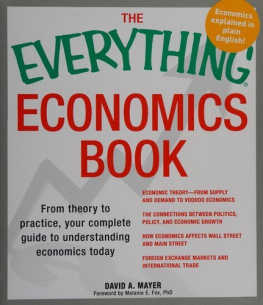
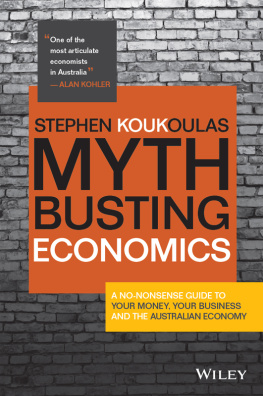

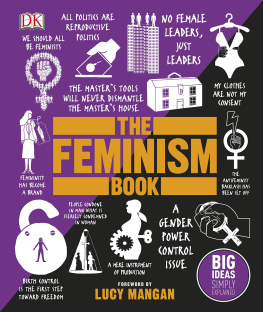
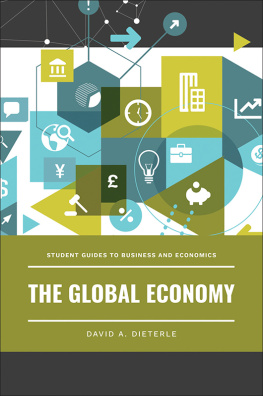
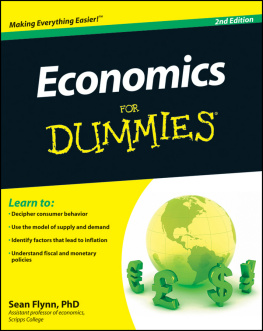
![David Orrell [David Orrell] - Quantum Economics](/uploads/posts/book/114631/thumbs/david-orrell-david-orrell-quantum-economics.jpg)
